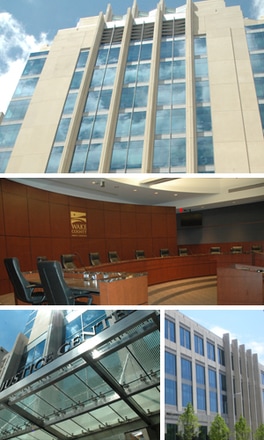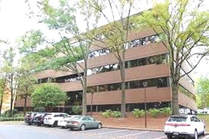Your Resource For Alternative Dispute Resolution
CAROLINA DISPUTE SETTLEMENT SERVICES
Building a Win-Win District Court Mediation
|
|
Carolina Dispute Settlement Services' primary court mediation service is the Criminal District Court Program. Utilizing both staff and volunteers, CDSS provides mediation services in District Criminal Court in both the Tenth Judicial District (Wake County) and the Ninth Judicial District (Warren, Vance, Granville and Franklin Counties). Our work gives people the opportunity to understand and resolve their problems while preserving the valuable resources of the judicial system.
|
The majority of cases assigned to this session involve charges that were filed with a magistrate directly by the complainant, as opposed to charges resulting from an arrest. As such, this session Criminal District Court is often referred to as "People's Court." Typical cases in People's Court include simple assault, cyberstalking, affray, communicating threats, harassment, violation of compulsory school attendance laws and other cases arising from interpersonal disputes that are generally considered appropriate for mediation.
CDSS mediators work with the parties toward reaching an agreement whereby the case may be dismissed without further court action. If you are a party to an action in "People's Court," you will be assigned a mediator on your court date: there is no need to contact CDSS directly.
CDSS mediators work with the parties toward reaching an agreement whereby the case may be dismissed without further court action. If you are a party to an action in "People's Court," you will be assigned a mediator on your court date: there is no need to contact CDSS directly.
Becoming a CDSS District Court Mediator

The benefits of volunteering with CDSS include continuing education and training opportunities, skill building, networking, and practical mediation experience.
It is CDSS policy that all applicants who want to volunteer with the program must possess a four-year degree and have completed, at minimum, an approved 40-hour mediation training course or equivalent training. More detailed information about mediator certification can be found at the North Carolina Dispute Resolution Commission website.
Additionally, each volunteer must undergo a background check, sign ethics and confidentiality agreements and participate in a short volunteer orientation, including a review of CDSS policies and procedures, courtroom protocol and service requirements. After gaining practical experience and being evaluated by co-mediator mentors, those volunteers who have acquired the requisite mediation skills may be invited to mediate for CDSS on an individual basis, or to co-mediate with newer volunteer interns, and clinical students in need of training.
It is CDSS policy that all applicants who want to volunteer with the program must possess a four-year degree and have completed, at minimum, an approved 40-hour mediation training course or equivalent training. More detailed information about mediator certification can be found at the North Carolina Dispute Resolution Commission website.
Additionally, each volunteer must undergo a background check, sign ethics and confidentiality agreements and participate in a short volunteer orientation, including a review of CDSS policies and procedures, courtroom protocol and service requirements. After gaining practical experience and being evaluated by co-mediator mentors, those volunteers who have acquired the requisite mediation skills may be invited to mediate for CDSS on an individual basis, or to co-mediate with newer volunteer interns, and clinical students in need of training.
We believe it is important to constantly improve our skills and programs. Therefore, it is the responsibility of all CDSS volunteers to debrief their sessions with their co-mediators or other CDSS staff members. Both new mediators and seasoned mediators benefit from this shared experience.
Our District Court services program is enriched by an exceptional group of volunteer mediators.
As CDSS is a Certified Center under G.S. 7A-38.3D, all our volunteers must become certified to mediate
in Criminal District Court.
Please contact our office for more information about applying for our District Court Volunteer Mediation Program.
Our District Court services program is enriched by an exceptional group of volunteer mediators.
As CDSS is a Certified Center under G.S. 7A-38.3D, all our volunteers must become certified to mediate
in Criminal District Court.
Please contact our office for more information about applying for our District Court Volunteer Mediation Program.
|
District Court Mediators represent diverse backgrounds and professions, providing unique experiences and insights. Past and present volunteers have included professional mediators, attorneys, counselors, clergy, law students, retirees, and others.
|
|

We are closed on federal holidays and when the North Carolina court system is closed. For up-to-date information about our office hours, including inclement weather closings, please follow us on Facebook. |
